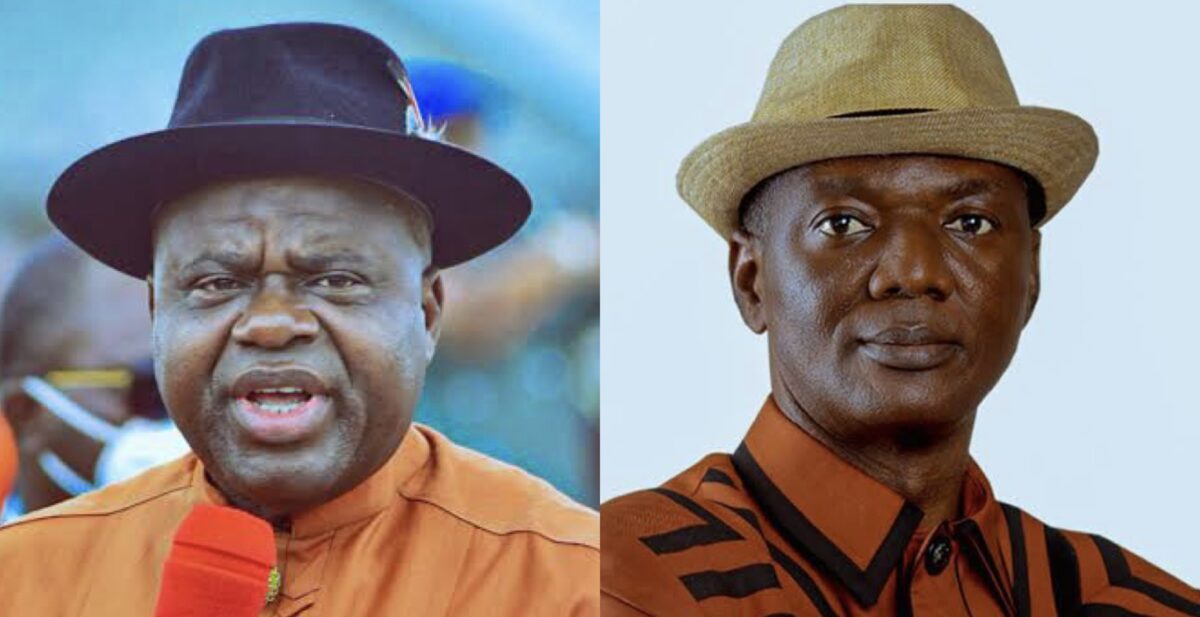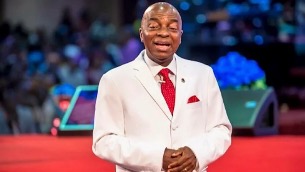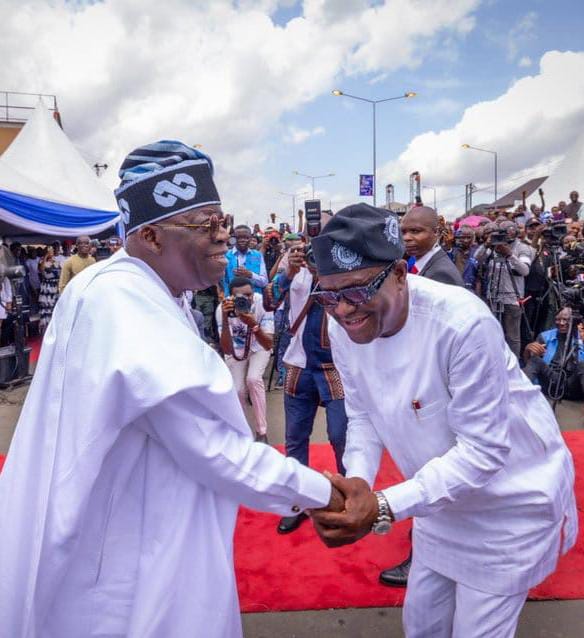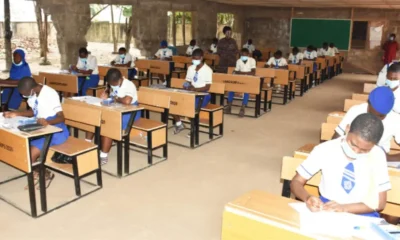Politics
Asian markets rise ahead of US election, Chinese stimulus meeting
Asian markets rise ahead of US election, Chinese stimulus meeting
Asian markets rose Monday as investors steel themselves for a too-close-to-call US presidential election, while Chinese leaders meet to hammer out a stimulus package that experts say could be determined by the vote.
The gains came after a positive lead from Wall Street and data showing far fewer US jobs were created last month than expected, boosting hopes for a Federal Reserve interest rate cut when it gathers this week.
With Democratic Vice President Kamala Harris and her Republican rival Donald Trump neck and neck ahead of Tuesday’s poll, traders are keeping a close eye on any hint of an advantage either way.
The dollar slipped Monday as a fresh opinion poll in Iowa — which Trump won in 2016 and 2020 — showed Harris leading.
A victory for Trump is seen as being positive for the dollar and pushing up Treasury yields owing to his pledges to cut taxes and impose hefty tariffs on imports.
Elections for the Senate and House of Representatives are also being closely watched amid speculation the Republicans could take control of both.
“It’s not just about who wins the presidency but also the composition of the House and Senate,” said Peter Esho, founder of Esho Capital.
“If the Republicans sweep all three, that will open the door to significant fiscal changes, which is negative for bondholders and could spell higher yields until the dust settles.”
The election comes days before the Fed is due to make its latest policy decision, with investors expecting 25-basis-point reduction after a bumper 50-point cut at its last gathering.
The vote is of particular interest to China, where Beijing is this week meeting to hammer out an economic stimulus.
The concrete measures are expected to be announced Friday, allowing time for officials to digest the result and make allowances for either.
“We believe the US election results will have some impact on the size of Beijing’s stimulus package,” said Ting Lu, Nomura’s Chief China Economist, in a research note.
Both candidates in the race have pledged to get tougher on Beijing, with Trump promising tariffs of 60 percent on all Chinese goods coming into the country.
“We are expecting more details on the proposals to be passed,” said Heron Lim of Moody’s Analytics, including “how this extra funding would be allocated to address the near-term economic issues”.
Nomura economists expect lawmakers this week to approve around a trillion yuan ($140 billion) in extra budget — mostly for indebted local governments.
Observers also expect Beijing to approve a one-off one trillion yuan for banks, aimed at writing off non-performing loans over the past four years.
Markets rose across Asia, with Hong Kong and Shanghai among the best performers, while Sydney, Seoul, Singapore, Taipei, Wellington and Jakarta were also well up.
Oil prices rose more than one percent after eight members of the OPEC+ group of producers said Sunday they would extend supply cuts until the end of next month.
They had been delaying output hikes on worries about slowing demand in China and the United States.
The commodity was also being supported by geopolitical tensions after Iran’s supreme leader Ayatollah Ali Khamenei warned at the weekend that Israel and the United States “will definitely receive a tooth-breaking response” to Israeli attacks on October 26.
That strike was in response to an October 1 barrage of about 200 missiles against its rival.
Key figures around 0230 GMT
Hong Kong – Hang Seng Index: UP 0.2 percent at 20,546.35
Shanghai – Composite: UP 0.3 percent at 3,282.42
Tokyo – Nikkei 225: Closed for a holiday
Euro/dollar: UP at $1.0888 from $1.0833 on Friday
Pound/dollar: UP at $1.2975 from $1.2917
Dollar/yen: DOWN at 151.79 yen from 153.01 yen
Euro/pound: UP at 83.92 from 83.86 pence
West Texas Intermediate: UP 1.5 percent at $70.50 per barrel
Brent North Sea Crude: UP 1.4 percent at $74.09 per barrel
New York – Dow: UP 0.7 percent at 42,052.19 (close)
London – FTSE 100: UP 0.8 percent at 8,177.15 (close)
Politics
Breaking: Diri Orders Autopsy on Bayelsa Deputy Governor’s Death, Warns Against Politicisation

Bayelsa State Governor, Senator Douye Diri, has ordered an autopsy to determine the cause of death of the state’s Deputy Governor, Lawrence Ewhrudjakpo.
Governor Diri gave the directive on Saturday while receiving former President Goodluck Jonathan at the Government House in Yenagoa.
Reacting to the incident, the governor condemned what he described as widespread misinformation and speculation on social media, warning against any attempt to politicise the deputy governor’s death.
“I want to make an appeal. I have seen people politicise his death. In Ijaw land, there is no enmity in death. Let nobody politicise the passing of our dearly beloved deputy governor,” Diri said.
“If anyone truly loves him, this is the time to show it. I have directed that an autopsy be carried out to reveal the cause of his death. There is a lot of nonsense going on on social media.”
The governor further urged the public to focus on mourning and honouring the late deputy governor, noting that the state government had declared three working days of mourning in his honour.
“If anyone is issuing statements to eulogise him, let it end there. Let us mourn him because Bayelsa State is in a mourning mood,” he added.
Governor Diri also called for unity and love among the people, reminding them of the inevitability of death.
Speaking during the condolence visit, former President Goodluck Jonathan described the late Ewhrudjakpo as a committed and dedicated individual who played a key role in the activities of his foundation.
“For me, he was someone my foundation and I will never forget. He represented the governor in all our programs,” Jonathan said, adding that Ewhrudjakpo worked tirelessly in that role, even more than when he served as deputy governor.
Politics
N1.4 Trillion not enough to get me into politics – Bishop Oyedepo reveals

The founder of Living Faith Church, Bishop David Oyedepo, has said he will never take part in partisan politics, not for even billions of naira.
He stated that no amount of money, including “$1 billion,” (1.4 Trillion naira) would make him join politics.
Oyedepo made this known during an impartation service at Shiloh 2025 held at the church’s headquarters in Canaanland, Ota, Ogun State.
He explained that partisan politics is not part of his life’s calling and that is why he has chosen to stay away from it.
In his words: “In 2015, I warned the church that trouble was coming. Didn’t trouble come?
“Partisan politics is off my calling. If you give me $1 billion to join politics, I won’t, because it is off my course.”
The bishop also said the world is in urgent need of God’s intervention because of the times we are living in.
According to him, believers are being trained as an end-time army to bring solutions to national and global problems, similar to what biblical figures like Joseph and Daniel did.
EVENTS
Wike at 58: “You’re a Shinning Star in my Cabinet, Tinubu hails Wike.

President Bola Tinubu congratulates Chief Nyesom Wike, Minister of the Federal Capital Territory (FCT), on his birthday, December 13.
President Tinubu celebrates with the Minister and former governor of Rivers State, giving thanks to God Almighty for enriching him with a life defined by purpose, service, and courage.
The President describes Chief Wike as an audacious top performer who defies obstacles and delivers results.
President Tinubu acknowledges the ongoing transformation of the Federal Capital Territory through infrastructure expansion, highlighting the Minister’s recent intervention that broke the 14-year logjam in the construction of the Apo-Karshi road.
The President commends Chief Wike for his resilience, can-do attitude, and commitment to excellence in all assignments.
President Tinubu thanks the Minister for his consistent efforts in delivering results and wishes him a happy birthday and strength to further his good work in the FCT.
“Nyesom Wike has been one of the shining stars in the cabinet, an exceptional performer, developing infrastructure in the Federal capital as never seen before and proving that his moniker as ‘Mr Project’ is not limited to his home state of Rivers.
“I commend him for being one of the champions of our Renewed Hope Agenda, even though he belongs to another party and wish him well as he marks another year in his life journey”.
Bayo Onanuga
Special Adviser to the President
(Information and Strategy)
December 13, 2025
-
Business1 year ago
US court acquits Air Peace boss, slams Mayfield $4000 fine
-

 Trending1 year ago
Trending1 year agoNYA demands release of ‘abducted’ Imo chairman, preaches good governance
-

 Politics1 year ago
Politics1 year agoMexico’s new president causes concern just weeks before the US elections
-

 Politics1 year ago
Politics1 year agoPutin invites 20 world leaders
-

 Politics1 year ago
Politics1 year agoRussia bans imports of agro-products from Kazakhstan after refusal to join BRICS
-
Entertainment1 year ago
Bobrisky falls ill in police custody, rushed to hospital
-
Entertainment1 year ago
Bobrisky transferred from Immigration to FCID, spends night behind bars
-
Education1 year ago
GOVERNOR FUBARA APPOINTS COUNCIL MEMBERS FOR KEN SARO-WIWA POLYTECHNIC BORI













